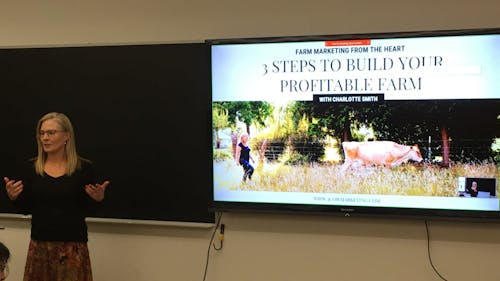Rutgers hosts workshop for women, veteran farmers

An event geared toward advising women and veterans in the field of urban farming was held on Dec. 3, on Douglass campus, as the first part of a workshop series called “Annie’s Project: Farming in New Jersey’s Cities and the Urban Fringe.”
“Annie’s Project gives New Jersey women farmers the tools to help them succeed by focusing on five areas of farm risk — marketing and pricing, production risk, financial management, human and personal risk and legal risk,” according to Rutgers University New Jersey Agricultural Experiment Station’s (NJAES) website.
The majority of the attendees at the event were women who come from different backgrounds and stages within their career in the field of urban farming. The event was facilitated through the aid of Robin G. Brumfield, extension specialist in farm management in the NJAES Department of Agricultural, Food and Resource Economics.
More women are involved in farming than previously assumed, said Dr. Laura Lawson, dean of Agriculture and Urban Programs.
“Right now, according to the last agricultural census, 36% of U.S. farmers are women. And a recent study has shown that 38% of farms have a female primary producer. The only reason that we now have that data is because now they are allowing for multiple producers to be included (in the census), so prior to that women weren't necessarily being counted as farmers,” Lawson said. “Now they have a new census data that is really going to start highlighting the fact that there are quite a lot of women involved in primary production and farming.”
Female farmers often have an affinity toward farming for different reasons than men do, said Joseph R. Heckman, professor of soil science in the Department of Plant Biology. He introduced the keynote speaker, farmer and marketing strategist Charlotte Smith, who wrote the book “Farm Marketing from the Heart: How to attract your dream customers and build your profitable farm.”
Smith provided tips to the audience on how to better market their farms. She said women farmers should build relationships with their clients. This can be done by maintaining an internet presence and communicating with clients through email. Emails should be targeted at the consumer even if their business does not produce anything during a particular season.
The audience took notes as Smith spoke, and she said that those who follow her advice are often successful.
“I teach men and women, but the most successful people in my marketing class are usually the women and when you see a really successful farm, it is often the woman who is doing the marketing,” Smith said.



